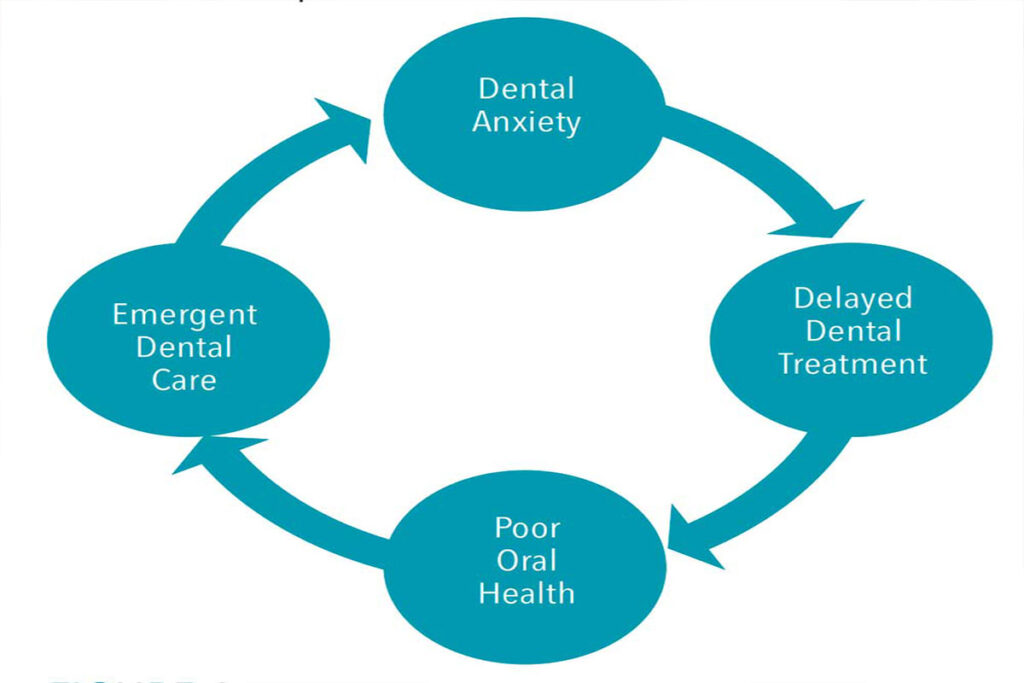 29 May 2024
29 May 2024
Dental Health is integral for a healthy life, but many people get terrified and anxious just thinking about going to the dentist. This widespread dental fear is called dental anxiety. It keeps millions of people around the world from getting the dental care they need or puts it off completely. Not going to the dentist regularly can lead to serious oral problems like cavities and gum disease that could have been avoided with regular check-ups.
Understanding and dealing with nervous patients is essential to ensuring people get the care they need without too much stress. This piece aims to help people who are scared of dentists find the best ones who know how to make patients feel at ease. By promoting dentists known for their kindness, skill, and use of modern methods, we can help nervous patients overcome their fears and feel confident about their dental health.
In this blog, we’ll examine the features of Best Dentists for Nervous Patients and what makes dentists great at dealing with anxious patients. We will also discuss different ways to deal with dental anxiety and how to overcome this situation to make their visits less stressful. This complete guide will help people afraid to go to the dentist take the first step toward better dental health without fear.

What is Dental Anxiety?
Dental Anxiety, often referred to as dental phobia when severe, is a common and significant issue that affects a large portion of the population. It can range from mild unease to intense fear and panic, preventing individuals from seeking essential dental care. Understanding the roots and manifestations of this anxiety is the first step toward addressing and alleviating it.
Causes of Dental Anxiety
Several factors contribute to dental anxiety, including:
- Past-negative experience: Traumatic dental visits, especially as a child, can leave permanent memories and cause fear.
- Fear of Pain: A big part of dental anxiety is fear of pain, which is frequently based on previous experiences or horror stories from others ro even first hand experience.
- Loss of control: Being in the dentist’s chair can make people feel vulnerable and helpless, heightening their fears.
- Needle Phobia: Many dental procedures include injections, which can be scary for those with needle phobia.

The vicious cycle
of dental anxiety
Symptoms of Dental Anxiety
Dental Anxiety can show up in several different mental and physical ways. Some common signs are:
Psychological Symptoms:
- Intense fear or panic at the thought of dental visits
- Insomnia or difficulty sleeping before a dental appointment
- Irrational thoughts or worries about dental procedures
- Avoidance of dental care despite obvious dental problems
Physical Symptoms:
- Sweating
- Rapid heartbeat (tachycardia)
- Feeling faint or lightheaded
- Nausea or upset stomach
- Crying or visibly shaking
Techniques and Approaches for Managing Dental Anxiety
Dentistry-led strategies must be combined with patient-centered approaches to manage nervous patients effectively. Here are some of the most successful tactics and techniques dentists employ to make anxious patients feel more comfortable and safe during dental visits.

Patients take a prescription sedative tablet about an hour before their session, which allows them to relax while remaining awake.
A moderate sedative is taken using a mask, allowing patients to relax almost immediately.
Sedatives are delivered straight into the bloodstream, causing more profound relaxation or sleep.
Patients are placed under a controlled state of unconsciousness.
How to Choose the Right Dentist?
- Research Dentists with Experience in Treating Anxious Patients:
- Look for dentists who advertise their expertise in managing dental anxiety and sedation dentistry.
- Read online reviews and testimonials from other patients who have similar concerns.
2. Schedule a Consultation
- Arrange a meeting with the dentist to discuss your anxieties and special needs.
- Use this chance to evaluate the dentist’s empathy, communication style, and readiness to address your issues.
3. Ask About Sedation Options
- Inquire about the many types of sedation offered and which may be most appropriate for your degree of anxiety.
- Check that the dentist is sedation-certified and has expertise working with nervous patients.
4. Visit the Clinic
- Take a dental clinic tour to check if the environment is relaxing and comfortable.
- Look for staff members who are friendly and approachable.
By following these suggestions, worried patients can overcome their dental anxiety and establish a more positive and manageable dental care routine. The goal is to develop a trusting connection with a compassionate dentist who understands their requirements and devises techniques to make them feel more at ease during their appointments.
Final Thoughts
Dental anxiety is a frequent concern that can keep people from obtaining critical dental care, resulting in serious oral health problems. However, even the most anxious patients may conquer their concerns and retain an approving grin with the correct methods and assistance.
The first step in overcoming dental anxiety is finding a caring and professional dentist to provide a secure, pleasant, supportive environment. Dentists who recognize and satisfy the specific needs of nervous patients can significantly improve their experience and desire to undergo dental treatments.
In conclusion, dental anxiety does not have to be a barrier to obtaining and maintaining good oral health. Even the most nervous individuals can benefit from happy and stress-free dental care if they choose the proper dentist and use good anxiety-management practices. We encourage anyone experiencing dental anxiety to seek dedicated Practices focussing on care for the dentally anxious and take the first step towards a healthier, more confident smile.